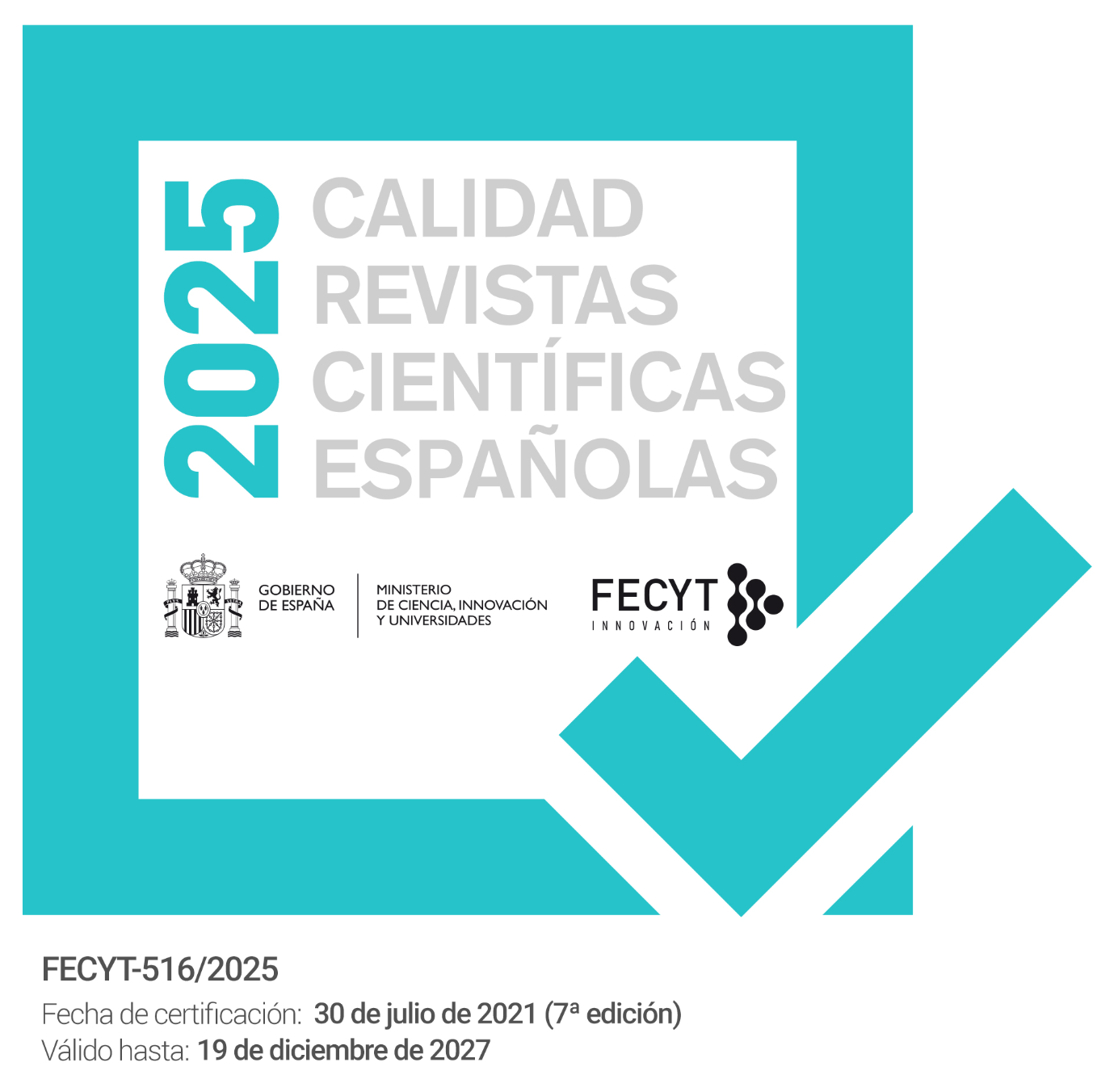About the Journal
Aims & Scope
The Revista de Investigación Lingüística is a scientific periodic publication focused on the study of the Spanish language and Linguistics from any theoretical model or methodological approach. Published papers are able to adopt both a synchronous and diachronic perspective.
The title aims to disseminate the latest theoretical and methodological approaches developed in these fields.
This publication is aimed at researchers and professionals interested in the advances of Hispanic linguistics.
The Publications Service of the University of Murcia is responsible for the edition of the Revista de Investigación Lingüística, which since 2004 has an annual periodicity. Each issue contains, on the one hand, a monographic section whose articles address a specific topic under the coordination of a specialist, and on the other, a general section, open to any subject related to the Spanish language or Linguistic.
The editors invite all researchers interested in deepening these disciplines to participate with unpublished works.
ISSN-e: 1989-4554 - ISSN: 1139-1146
Social networks
Revista de Investigación Lingüística can be followed on social networks, where information of interest to readers and authors is published (CFP, publication of issues, indexing in databases, etc.).
- Instagram @ril_revista
Publication Ethics and Publication Malpractice Statement
Fair play and editorial independence
Editors evaluate submitted manuscripts exclusively on the basis of their academic merit (importance, originality, study’s validity, clarity) and its relevance to the journal’s scope, without regard to the authors’ race, gender, sexual orientation, ethnic origin, citizenship, religious belief, political philosophy or institutional affiliation. Decisions to edit and publish are not determined by the policies of governments or any other agencies outside of the journal itself. The Editor-in-Chief has full authority over the entire editorial content of the journal and the timing of publication of that content.
Confidentiality
Editors and editorial staff will not disclose any information about a submitted manuscript to anyone other than the corresponding author, reviewers, potential reviewers, other editorial advisers, and the publisher, as appropriate.
Disclosure and conflicts of interest
Editors and editorial board members will not use unpublished information disclosed in a submitted manuscript for their own research purposes without the authors’ explicit written consent. Privileged information or ideas obtained by editors as a result of handling the manuscript will be kept confidential and not used for their personal advantage. Editors will recuse themselves from considering manuscripts in which they have conflicts of interest resulting from competitive, collaborative, or other relationships/connections with any of the authors, companies or institutions connected to the papers; instead, they will ask another member of the editorial board to handle the manuscript.
Publication decisions
The editors ensure that all submitted manuscripts being considered for publication undergo peer-review by at least two reviewers who are expert in the field. The Editor-in-Chief is responsible for deciding which of the manuscripts submitted to the journal will be published, based on the validation of the work in question, its importance to researchers and readers, the reviewers’ comments, and such legal requirements as are currently in force regarding libel, copyright infringement and plagiarism. The Editor-in-Chief may confer with other editors or reviewers in making this decision.
Involvement and cooperation in investigations
Editors (in conjunction with the publisher and/or society) will take responsive measures when ethical concerns are raised with regard to a submitted manuscript or published paper. Every reported act of unethical publishing behaviour will be looked into, even if it is discovered years after publication. If, on investigation, the ethical concern is well-founded, a correction, retraction, expression of concern or other note as may be relevant, will be published in the journal.
Anti-plagiarism Policy
Authors must ensure that the data and results presented in their work are original and that have not been copied, invented, distorted or manipulated.
Plagiarism in all its forms, self-plagiarism, multiple or redundant publication, as well as the invention or manipulation of data constitute serious breaches of ethics and are considered scientific fraud. The editors, firmly committed to ensuring that the manuscripts under consideration do not show plagiarism or any other type of fraud, have an anti-plagiarism system.
Authors will not submit to the Revista de Investigación Lingüística manuscripts that are being considered for publication elsewhere. Likewise, manuscripts being considered for publication in the Revista de Investigación Lingüística cannot be submitted elsewhere until authors are notified of their rejection or else withdraw them voluntarily.
Open Acess Policy
The Revista de Investigación Lingüística provides its contents in immediate and full-text open access, under the principle that allowing free access to research results has a greater impact on the global exchange of knowledge.
The journal does not have article processing charges (APCs).
See the Copyright rights for more information.












